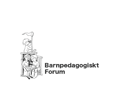Background
The BRIC Project lasted for 3 years, from 1st September 2014 to 31st August 2017. The project involves preschool teachers, young children and parents in exploring democratic engagement in public and civic spaces. The project is funded by the European Union and led by Professor Tim Waller at Anglia Ruskin University (UK) with Patti Benedetti Progettinfanzia (Italy) and Monica Hallborg Barnpedagogiskt Forum (Sweden).
Aims and objectives
BRIC aims to achieve the following objectives:
1) An exchange of ‘good practice’ between preschool teachers in three countries (Italy, Sweden and the UK);
2) Systematic education and training around democratic engagement in public spaces;
3) The development of open educational resources and targeted activities to engage early childhood professionals, parents, the local community and key stakeholders, including local politicians and representatives from business.
Methods
Two main methods are used in BRIC –
1.Participatory Action Research (PAR) – the construction of a common grammar through PAR.
2.‘Polyvocal’ – many voices.
First Voice – The film of young children in public spaces
Second Voice – Reflections of children and pedagogues in setting
Third Voice – Reflections of pedagogues in the same culture
Fourth Voice – Reflections of pedagogues in different cultures
Fifth Voice – Reflections of the parents, community and researcher/s.
BRIC methods are drawn from the well-known studies of Preschool in Three Cultures by James Tobin and colleagues (Tobin, Wu and Davidson, 1989 and Tobin, Hsueh, and Karasawa, 2009).
Project Activities and Actions
BRIC will involve teachers, children, parents (citizens) and politicians seeking to participate in democratic engagement around three specific Focus Spaces:
- the pavement (footpath, marciapiede, or equivalent)
- an indoor space (such as a library, but not a preschool) and
- a green outdoor space (such as a park or woodland).
These activities will be documented and reflected on by the participants and disseminated through Local Forums, Transnational Exchanges and Webinars.
Impact and dissemination
Wider dissemination of BRIC will be made via the project website and Documentation Centre. In addition, impact will be strengthened through:
- The publication of a series of Case Studies and Vignettes drawn from BRIC activities
- The establishment of Permanent Open Forums in each participating country.
An International Conference in Brussels will be held at the completion of the project in 2017.
BRIC Pilot Project
A pilot project was established to explore the validity of the BRIC model of cross-cultural dialogue, documentation and reflection between preschool teachers in three countries; England, Italy and Sweden. The pilot took place between November 2013 and February 2014. The BRIC pilot project demonstrated that there was a generally very positive response to the BRIC project, from all preschool teachers and head teachers in the three countries involved. In addition, the pilot has shown how an exchange of ‘good practice’ between preschool teachers in three countries is feasible and is both desirable and highly valuable for the preschool teachers’ continuing professional development, leading to deeper reflection and understanding.
The participating preschool teachers in England, Italy and Sweden agreed that for the main BRIC project the starting point is the dialogue with children and that there is a need for sustained and frequent engagement in a particular place – or public space.
Also, for the BRIC project to succeed it is important for the children to leave traces of their engagement and the project must involve and inform local politicians and policy makers as well as parents.
Read and download the BRIC BRIEFING
Read and download the PILOT PROJECT BOOKLET



